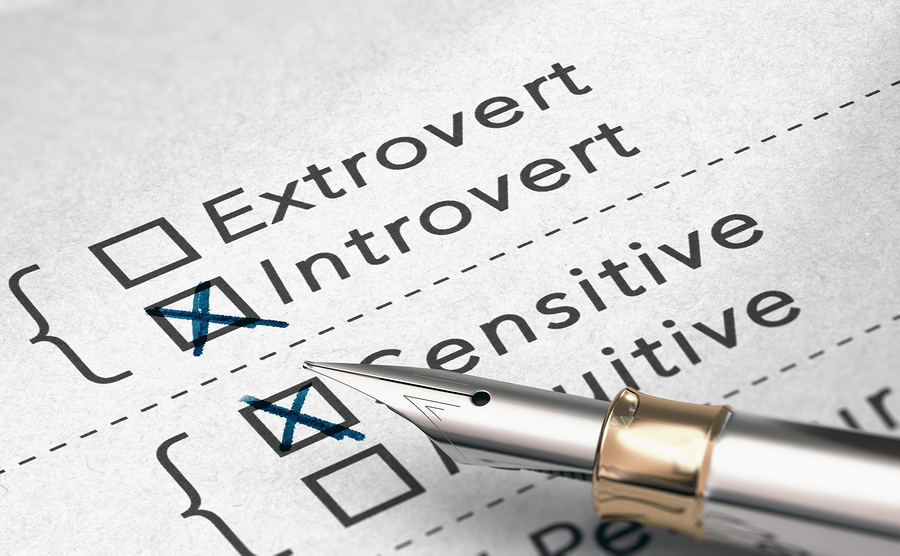August 9, 2019
by Tina Arnoldi
 Is it helpful to classify personality types or does it put people into a box? A review of taxometric studies of personality concludes: “Whether personality attributes are best understood as dimensions or categories (types) is the subject of some debate.” Yet another study states that “information is lost when personality facets are overlooked”. Experts weighed in on the usefulness of classifying personality types.
Is it helpful to classify personality types or does it put people into a box? A review of taxometric studies of personality concludes: “Whether personality attributes are best understood as dimensions or categories (types) is the subject of some debate.” Yet another study states that “information is lost when personality facets are overlooked”. Experts weighed in on the usefulness of classifying personality types.
Brad Kullman, a human performance specialist, believes it is helpful to classify people when based on objective and meaningful criteria. “Unfortunately, conventional ‘personality’ inventories are flawed,” he says, which explains the disconnect in research. His concern is that conventional personality tests mix the impact of nature and nurture on an individual. “This problem is compounded by the fact that assessments of ‘personality’ are conducted through self-report. The way we see ourselves is often quite different from the way we are."
Kullman feels there is hope for improvement in the field of personality testing. He notes “advances in the hard sciences—neuroscience, biomechanics, genetics, and optometrics—have revealed observable and measurable aspects of the way each person is hardwired at conception to think, behave, and perform. Conventional “personality” tests as we know them will soon be a thing of the past as advances in science pave the way to accurately and meaningfully identify each person’s true indelible makeup.”
Molly Owens, CEO of Truity says the interest in putting people into categories makes sense because “this is how the mind makes sense of things, by classifying and categorizing. “ But she has a concern about how it is used. “Classifying people into types is not the most scientific way to think about personality, because people don't fit neatly into categories. It's far more accurate to think about human personality traits on a spectrum: more extroverted, less conscientious, and so on. This is how personality scientists think about our differences. But for the average person, a system based on types is much easier to think about and understand, because it builds on our natural instinct to categorize.” Adina Mahalli, MSW has a similar concern, noting that “while personality tests can be quite comprehensive, there’s no way that they can be 100% accurate and people change based on their surroundings, those they interact with, and their experiences.”
But Dr. Alex Anastasiou, a Board Certified Psychiatrist sees classification a useful tool in psychiatry. “Often times personality types are more likely to engage in behaviors or suffer from disorders. By understanding where a person’s personality fits in relation to others, a psychiatrist can come up with a better treatment plan as well as identify potential roadblocks. For example, if someone has a personality type that is very rigid and sensitive to rejection, you should assess for OCD behaviors or eating disorders.” Victoria Woodruff MSW, also sees benefits for treatment because of the relief it provides to her clients. It helps them understand how they behave and react to situations. In her experience, classification “does allow for more targeted treatment."
Others see benefits to understanding personality outside of the clinical treatment setting. Thomas Brown, the head of content at BabelQuest, uses the PPA Assessment offered by the Thomas Institute to better understand colleagues and job candidates. People answer a series of questions with one adjective they believe describes them most and one that describes them least.
Brown says, “As digital marketers, salespeople, and content creators, we're aware of the importance of understanding the audiences we're trying to reach and engage. The better we understand them, the more effectively we can communicate with them. The PPA enables us to achieve a similar level of understanding internally, across our own teams.”
He also sees benefits for himself. “My PPA results made me more self-aware. Across both counts, a behavior or response that might once have seemed irrational or even combative is now anticipated. It makes sense and is consistent with what the person has identified as part of their character. Without these steps to 'classify' their personalities, this wouldn't be the case.”
Like other experts, Brown does exercise some caution, recognizing, these are “guidelines only”. He notes, “We always ask the individual how closely they relate to the findings and how well they feel the findings represent them. Far from pigeon-holing our teams or the types of people we hire to grow them, this process helps us to promote diversity across teams with a broad range of complementary skills, behaviors, and interests. It helps us to understand our colleagues better which makes for a healthier, happier workforce.”
About the Author
 Tina Arnoldi
Tina Arnoldi
Tina Arnoldi, MA is a marketing consultant and freelance writer in Charleston SC. Learn more about her and connect at TinaArnoldi.com